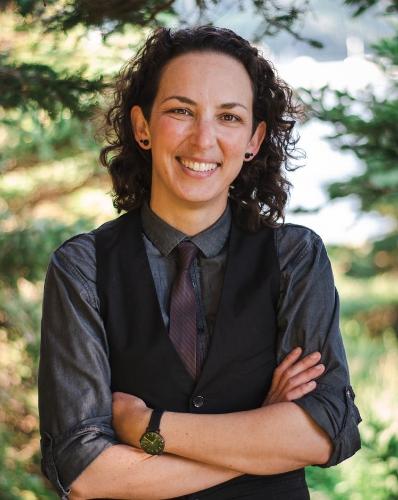Sarah Gordon

Associate Professor
B.A. Hons (Queen's)
M.A. (University College London)
Ph.D. (Indiana)
s.gordon@mun.ca
709-864-8601
ED4043, Education Bldg.
Sarah M. Gordon is interested in the ways people use folklore to engage with imbalances of power and vulnerability. Her current work focuses on queer expressive culture in Atlantic Canada, with emphases on how queer people narrate their experiences of queer joy, and on the rituals some trans* people develope around elements of their physical gender transitions. Past work has included community-based narrative documentation in Denendeh, digital research on the manipulation of the mechanics of tradition by white supremacist trolls, and extensive commentary on folklore's theoretical norms and practices.
Dean's Award for Teaching Excellence, 2025
Recent Publications
2025. "Minting Money: Queer Temporality and Performance in Ethnography." In Emerging Perspectives in the Study of Folklore and Performance. Solimar Otero and Anthony Bak Buccitelli, eds. Indiana University Press. 60-77.
2023. “Expression Games, Vernacular Authority, and Legend Fabrication: How Trolls Turned the OK Sign into a White Power Symbol.” Western Folklore 82(1) 5-36.
2021. “But One Generation Removed from Extinction: Folklore and the Mitigation of precarity." In “Creating from the Margins: Precarity and the Study of Folklore,” edited by Sarah M. Gordon and Benjamin Gatling. Special issue, Journal of Folklore Research 58(3) 7-28.
2021. Gordon, Sarah M. and Benjamin Gatling. “Introduction.” In “Creating from the Margins: Precarity and the Study of Folklore,” edited by Sarah M. Gordon and Benjamin Gatling. Special issue, Journal of Folklore Research 58(3) 1-6.
2021. “A Woman’s Place is in the (Greasepaint-)White House: How the 2016 Presidential Election Sparked a Creepy Clown Craze.” Journal of American Folklore 134(531) 25-52.
2015. “Narratives Unearthed: Or, How An Abandoned Mine Doesn’t Really Abandon You.” In Mining and Communities in Northern Canada. John Sandlos and Arn Keeling, Eds. University of Calgary Press.
2015. "Gúlú Agot’ı T’á Kǝ Gotsúhɂa Gha – Learning About Changes: Rethinking Indigenous Social Economy in Délı̨nę, NWT." Co-authored with Simmons et. al. In Northern Communities Working Together: The Social Economy of Canada’s North. Chris Southcott, ed. University of Toronto Press.